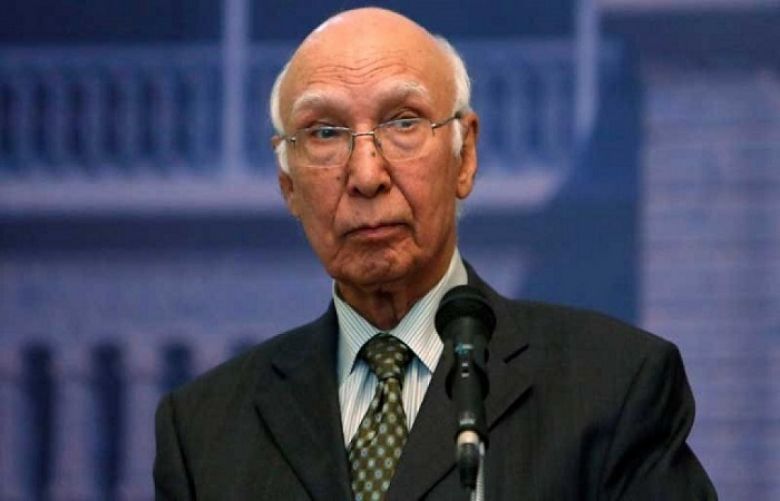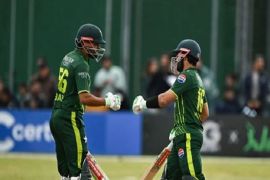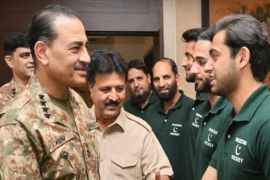Prime Minister’s Advisor on Foreign Affairs, Sartaj Aziz today (Thursday) confirmed that Afghan Taliban chief Mullah Akhtar Mansour died in a US drone strike in Balochistan last week.
“The person who was killed in the drone strike is Mullah Mansour," Aziz told reporters during briefing at the Ministry of Foreign Affairs.

He said that his body will not be handed over to anyone till the availability of DNA test report.
The advisor further revealed that Mansour used fake travel documents.
"According to the Afghan Taliban, Mullah Mansour was traveling with a different name," said Sartaj Aziz.
The development comes a day after the Afghan Taliban announced Haibatullah Akhundzada as their new leader, elevating a low-profile religious figure in a swift power transition after officially confirming the death of Mullah Mansour in a US drone strike.

"Haibatullah Akhundzada has been appointed as the new leader of the Islamic Emirate (Taliban) after a unanimous agreement in the Shura (supreme council), and all the members of Shura pledged allegiance to him," the insurgents said in a statement.
It added that Sirajuddin Haqqani, an implacable foe of US forces, and Mullah Yakoub, the son of Taliban founder Mullah Omar, were appointed his deputies. Analysts had previously seen them as the most likely candidates for the leadership.
"The leader of Islamic Emirate of Afghanistan and commander of faithful, Mullah Akhtar Mansour, was martyred in a US drone strike in... Pakistan’s Balochistan province," the statement said, in the insurgents’ first confirmation of his death.
Before his killing, Mansour had written a will handpicking Akhundzada to be his successor, Taliban sources told AFP, in an apparent bid to lend legitimacy to his appointment.
US President Barack Obama, who authorised the drone strikes, had confirmed the death Monday.
He said Mansour had rejected efforts "to seriously engage in peace talks", asserting that direct negotiations with the Afghan government were the only way to end the attritional conflict.
"The new leader’s appointment is a good opportunity for the Taliban to return to peace talks and rebuild their country," Afghan presidential spokesman Dawa Khan Menapal told AFP.
"If they reject peace talks they will face the same fate as Mansour."
Saturday’s drone attack, the first known American assault on a top Afghan Taliban leader on Pakistani soil, sent shockwaves through the insurgent movement which had seen a resurgence under Mansour.
He was killed just nine months after being formally appointed leader following a bitter power struggle upon confirmation of founder Mullah Omar’s death.
Omar died in 2013, but his death was kept secret for two years, with Mansour issuing statements in his name -- a revelation that helped fuel internal opposition and splintered the group into rival factions.
Akhundzada faces a similar challenge in unifying Taliban ranks.
A breakaway faction led by Mullah Rassoul rejected Akhundzada’s appointment, saying he was selected without any broad consultation with field commanders in Afghanistan.







